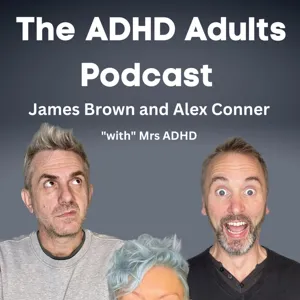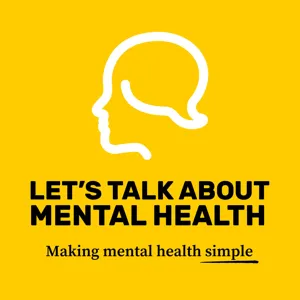In today’s episode, author and entrepreneur Lorenzo Lewis tells you the amazing story of how he is changing the lives of over 3 million people a year.
His story is so inspiring, and I wanted you to meet Lorenzo because I know he’ll inspire you to think bigger about making a difference in your community or the world at large.
Lorenzo had no funding, influence, or experience. He just had a simple idea and a very big heart. And that’s all you need to make the world a better place.
When Lorenzo was born, the odds were already stacked against him: his mother gave birth to him while she was in jail. His father died in prison. He was raised by his aunt and uncle. As a child, he struggled with anger, anxiety, and depression and was labeled a problem.
You’ll hear about the defining moment when Lorenzo made the decision to turn his life around. He graduated from college and started working in health and human services. That was where, at the age of 24, he had an idea about creating a mental health movement that is now changing millions of lives.
“The Confess Project” was born.
Lorenzo’s nonprofit trains barbers and beauticians to be mental health advocates for the men, women, and children who are sitting in their chairs.
Now 3,000 mental health advocates across the country are changing the lives of over 3 million people a year.
It’s an absolutely incredible story.
Today, you will learn:
- The incredible solution Lorenzo thought of to make therapy accessible and easy for underserved and represented communities.
- How to give yourself permission to pursue that big idea.
- The revolutionary Harvard study that explains why you feel so comfortable telling your hairdresser about everything.
- Why you have all the power and tools you need to make a difference.
- How working from home has increased loneliness (and why you feel like you have nobody to talk to).
- The 4 things you can say to someone who is having a bad day (steal this from Lorenzo’s playbook).
- Why now is the right time to take action on that project you are thinking about.
I can’t wait for you to meet, learn from, and be inspired by Lorenzo.
His story is proof that it’s never too late to change your own life and that when you see a problem you want to solve, lean into it.
You’ll not only help other people; you’ll surprise yourself with how much of a difference you can make.
Xo, Mel
In this episode:
- 2:30: 60% of us don’t fully trust this, so we avoid it altogether.
- 5:40: How do you start a nonprofit when you have no idea how?
- 11:00: Black-owned hair shops are an integral part of black communities.
- 14:30: Lorenzo’s is on a mission to close the vulnerability gap.
- 17:20: Anxiety may not always look the way you think it does.
- 19:45: Kids get labeled as bad behavior instead of treating mental health.
- 26:15: A child who does not feel warmth from the village will burn it down.
- 29:50: Unmet mental health needs are sometimes expressed as anger.
- 35:50: The moment Lorenzo proved that he keeps his word.
- 39:20: Stories of people not being supported mentally and emotionally.
- 42:45: When your therapist doesn’t look like you, it’s a barrier to connection.
- 44:20: I still remember when Ed Mylett said this to me.
- 46:20: So how do you come up with an idea that’s never been done before?
- 48:20: How do you get men to admit they need professional help?
- 52:00: What does it mean to be vulnerable and why is that important?
- 53:40: When your nonprofit starts reaching 1 million people!
- 54:00: The 4-Part therapeutic formula of The Confess Project we can all use.
- 56:40: Let’s role model what it looks like to sit in the barber chair.
- 60:20: The surprising Harvard research that drove this nonprofit's mission.
- 64:00: Examples of the impact The Confess Project has had on communities.
- 68:30: When you believe in your dream and you make it happen.
- 70:15: Two powerful stories from two barbers who saved two lives.
Want more resources? Go to my podcast page at https://melrobbins.com/podcast.
Disclaimer







